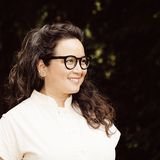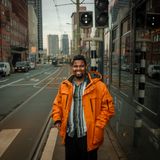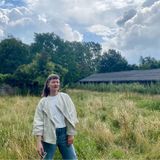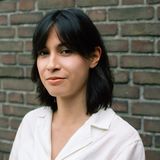The new Designing Cities for All: RE-generation series Beings of the Economy with DCFA Fellow Shinta Oosterwaal is an exploration into the idea of an economy as a sanctuary for all life. Our current economic system and thinking is resulting in polycrises. Yet beyond scenarios of doom and catastrophe, something seems to appeal to a new wholeness. We need healing responses to a deeply fragmented world with a new economy. In this series, we dive deeper, personally, and ask the question ‘how’ we may embark on a transformative journey to wholeness within the context of our economy?
The third and last episode of the Designing Cities for All: RE-generation series Beings of the Economy with DCFA Fellow Shinta Oosterwaal delves into seeking a sanctuary for all life. We will reflect on finding a new story for our economy in which the lost ethics and values are revived. This new story may be uneconomical where it is a safe haven (again). What does that system look like? How can we design an economy for all sanctuary life?
About the DCFA Fellow
Shinta Oosterwaal is a researcher at Avans University of Applied Science and co-author of the book THRIVE – Fundamentals for a new economy , among others. Together with Kees Klomp, she collected a rich palette of very real and innovative economic frameworks beyond capitalism. As an unconventional economist, she reads the economic transition as a logical and organic process of renewal in which universal and expressively un-economic values speak through new thinking and doing in the pockets of change of society as a healing response to a deeply fragmented world. Shinta is particularly fascinated by the existential dimension of transitions and by an economy as a sanctuary for all life.
About the speakers
Gilberto Morishaw is a changemaker, consultant, and practitioner working at the intersection of new economies, climate change, inclusion, and systems design. He is a Global Shaper for the World Economic Forum, a Systems Transformation Consultant for Creativo Design, a Senior Fellow for Humanity in Action, and President of the Supervisory board for the OCAN Foundation. He has worked on the development of regenerative socio-technical systems at Kolektivo and currently advises start-up companies and governments on how to build future-focused institutions, policies, and impactful programs.
Joline Jolink is a Dutch fashion designer and impact entrepreneur. In 2006 she started her fashion label Joline Jolink . In 18 years, it has grown into a respected sustainable brand with an autonomous course that is guided by the founder’s strong inner compass. Collections are made from sustainable, local and innovative materials. The brand is known for taking radical steps such as no sales since 2016, a second-hand platform, the first vegan sneakers, a biodegradable jacket from Dutch linen and a strict production ceiling. In 2023 Joline Jolink moved her company from Rotterdam to a village in Overijssel to create a new, meaningful business concept. This Fashion Farm is a combination of design studio, textile workshop, fashion store and permaculture. There is space for education and collaborations that provide inspiration and connection to the soil.
About this series
The Designing Cities for All: RE-generation series Beings of the Economy with DCFA Fellow Shinta Oosterwaal is an exploration into the idea of an economy as a sanctuary for all life. Our current economic system and thinking is resulting in polycrises. Yet beyond scenarios of doom and catastrophe, something seems to appeal to a new wholeness. We need healing responses to a deeply fragmented world with a new economy. In this series, we dive deeper, personally, and ask the question ‘how’ we may embark on a transformative journey to wholeness within the context of our economy.
About Designing Cities for All: RE generation
Over the first two years of Designing Cities for All (DCFA), we’ve learned about exclusion by design and the (re)design of inclusive cities. Along the journey, a certain question kept popping up: what exactly does ‘for all’ entail? After focusing mostly on the ‘who’ over the past two years, DCFA is rebooting as Designing Cities for All: RE-generation . This way around, the series is also incorporating the ‘what’ by looking through the fresh lens of regenerative design. This emerging field might very well be a promising answer to the challenges of our time, as it focuses on the design of products, services, systems and processes that lead to both social and ecological recovery and that keep the systems healthy.


One can find many initiatives and discourses which put the misguided economy back on track. More and more people do not simply fight "the economy" but work on real alternatives which revoke the logic of profit maximization. They focus on the micro level, on the macro level or on both. They often bring in an ecological perspective, promote sharing, sufficiency and/or care. The insiders call it diversity, the outsiders confusion. How are the different approaches related? What do they contribute to degrowth? These and other questions are explored in two related panels. They are followed by workshops to deepen the questions and to start joint planning and thinking.

"The South Resists" is a documentary that follows a protest caravan of the indigenous women-led resistance against the megaproject of the interoceanic corridor in the Isthmus of Tehuantepec, in southern Mexico. It sheds light on recurring development plans implemented by the Mexican government, resulting in land dispossession, income loss, precarization of labor, migration, and environmental degradation. The caravan is met with intimidation and an escalation of violent repression as it threads its way through small villages and towns in the region, to alert and mobilize the population.
This road movie-style film is grounded in Isabel Clavijo Flórez's case study, "Isthmus of Tehuantepec Corridor: Public-Private Partnerships and Territorial Impacts in Mexico," and is part of DAWN's larger project, "Old Dog, New Tricks: Neocolonialism & Public-Private Partnerships in the Global South," highlighting the effects on women's lives.









